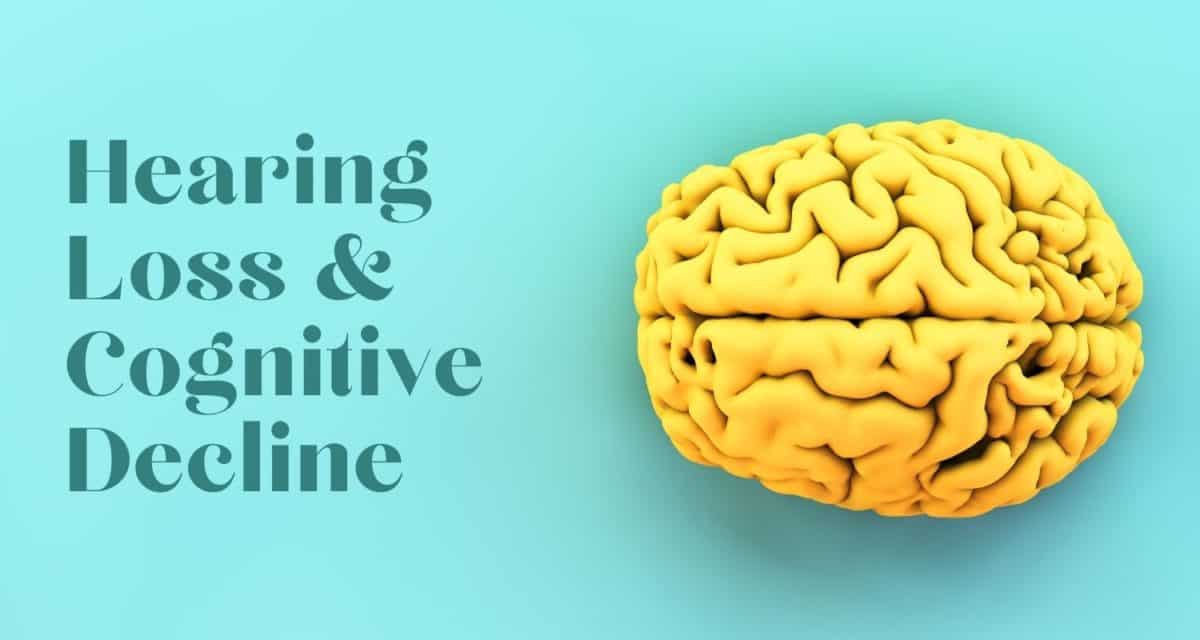If you have mild hearing loss, you probably don’t think it’s a very big deal. After all, you’re still hearing most of the sounds around you. You only ask people to repeat themselves a few times every day, and you don’t have to strain to hear the TV. However, even mild untreated hearing loss can increase your risk of rapid cognitive decline. This is linked to a greater risk of developing dementia as well as Alzheimer’s disease.
Don’t Overlook Hearing Loss
You might be tempted to avoid thinking about hearing loss. But hearing loss isn’t just a harmless part of aging. It’s the exact opposite! Untreated hearing loss is linked to cognitive decline. Even those with mild hearing loss are significantly more likely to experience cognitive decline. This can include changes in memory, having a harder time finishing tasks or even struggling to do things that used to be part of your daily routine.
Your Brain is Straining to Hear
One of the reasons that hearing loss is linked to cognitive decline has to do with what’s going on in your brain. When you have hearing loss you use a lot of energy and brainpower focusing on what’s being said and straining to make sense of the sounds around you. Your brain works hard to separate background noise from speech sounds to interpret what’s being said. All this extra effort can harm your brain. You may start using more areas of the brain to help you hear. Areas of the brain you use to understand sentences, think of your replies, and convert information into memories may be used just to help you fill in the gaps in your hearing.
Untreated hearing loss can also cause listening fatigue and exhaustion. And all that increased listening effort can lead to cognitive decline and other neurological concerns. If left untreated, hearing loss can also contribute to balance disorders, social isolation, depression, and even poor physical health.
Treating Hearing Loss is Good for Your Brain
Hearing loss treatment is widely available and very effective. Hearing aids that match your hearing needs will help you hear the world around you. When you wear hearing aids, you’ll be helping your ears send more signals to the brain. Rather than using so much energy straining to hear, the auditory centers in your brain will easily make sense of the sounds. Treating hearing loss reduces your risk of cognitive decline. Not only will you effortlessly hear all the sounds around you, but you’ll also be reducing your risk of cognitive decline or dementia in the future.
Learn to Recognize Hearing Loss
When hearing loss is gradual, it can sometimes be hard to recognize the signs of hearing loss right away. Here are some of the earliest signs of hearing loss that could point to mild hearing loss:
- You’ve been slowly turning up the volume on the TV
- You may ask people to repeat themselves during conversations
- It’s harder to hear in places with lots of background noise
- You’ve noticed a buzzing or ringing sound in your ears that could be tinnitus
- You failed a hearing screening at your doctor’s office
If these signs of hearing loss sound familiar, book a hearing test! These signs of hearing loss are some of the earliest indicators that your hearing isn’t as sharp as it used to be.
Discover Your Hearing Aid Options
Hearing aid technology gets better every year. Modern hearing aids are small, ergonomic devices that will fit easily into your ear canal or tuck away behind your ear. Not only do they look amazing, but they also run sophisticated programs designed to help you hear in a range of settings. You can find hearing aids that reduce background sounds to help you hear background noise. Hearing aid programs can also boost speech sounds to make it easy to follow conversations.
Do you need extra help when connecting to technology? You can choose hearing aids with connectivity features that wirelessly connect to your phone or computer for even better communication. Visit us for a hearing test to learn more about your hearing health. Then discover the hearing aid options that will help you hear, all while reducing your risk of cognitive decline.


